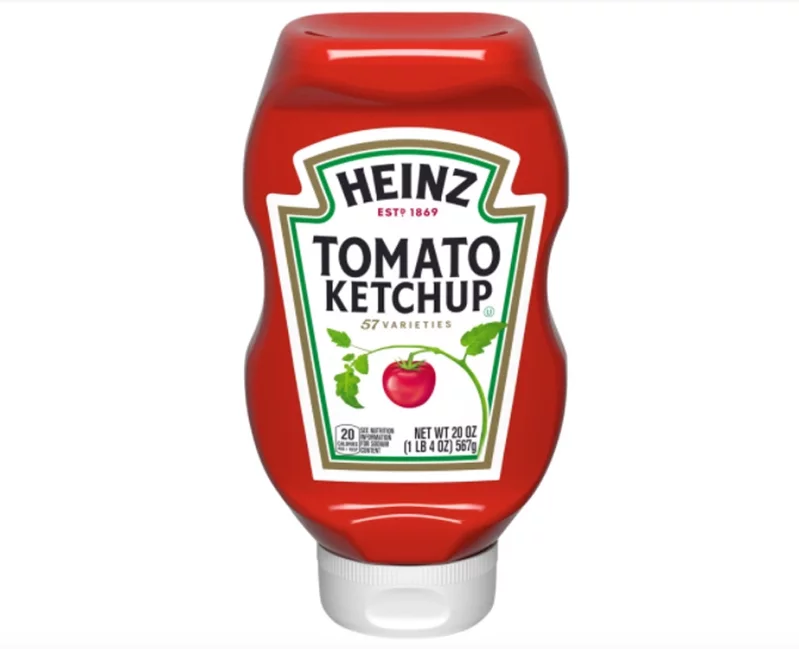
The Ketchup Ban
Heinz later worked with Sheeran to make a commercial and promote a commemorative bottle that was sold to raise money for East Anglia’s Children’s Hospices, chosen by Sheeran, and Rise Against Hunger, chosen by Heinz. Fans snapped up the commemorative bottle, which was designed based on Sheeran’s tattoos, and several museums added it to their collections.
In the commercial, Sheeran walks into a high-class restaurant and is served. He takes a bottle of ketchup out of his bag and pours it onto his food, at which point the entire restaurant is aghast, as if he has broken some divine commandment. For Sheeran, who himself once lived in poverty and slept on the streets in front of Buckingham Palace, the social connotation of using American ketchup in Europe, especially Great Britain, is more or less like making fun of upper-class hypocrisy. Heinz ketchup products have a market share of almost 80% in Europe, and annual sales exceed $20 billion. However, because it is a product of American fast-food culture, it produces a certain amount of class-related embarrassment.
How so? When England’s Premier League soccer team, Tottenham Hotspur, recently switched managers, one of the first things the new manager — famous Italian trainer Antonio Conte — did was forbid the team from using ketchup.
“The pitch and the game is only the final part of your work … ” Conte said. “You have to prepare your body and your mind. Also your heart … ” Indeed, tomato ketchup does not have much nutritional value, and the body is not so much affected by the tomatoes, as the name suggests, but rather by the sugar and salt. Still, many other foods around the world are 100 times more sugary, yet are not treated like ketchup.
Conte isn’t the first coach to take issue with ketchup. Many bans have been enacted throughout the history of soccer. From the Sunderland Association Football Club to the England national football team, when teams get a new coach who doesn’t like Heinz ketchup, ketchup is temporarily eliminated until a new coach arrives, when it is used again.
What attracts people to ketchup is not only the flavor, but the entire process of enjoying it. In the commercial, Sheeran rhythmically hits the glass bottle, letting the red sauce flow easily out onto his food. I was reminded of my first time in the U.S., when a server in a small town in Indiana showed us how to use ketchup just like this. This is a skill disdained by high society and famous soccer coaches, but privately enjoyed by everyone else.
In his new book, “Murakami T: The T-Shirts I Love,” Japanese writer Haruki Murakami writes about his T-shirt collection. He doesn’t just like ketchup — the first thing he does when he goes to the U.S. is enjoy the ritual of eating a hamburger with ketchup. He even bought a Heinz ketchup T-shirt as a souvenir. The shirt says, “I put ketchup on my ketchup,” and whenever he brings it out, he often receives compliments from Americans. Perhaps it is the spirit of “I’ll do what I want, regardless of whether it’s in good taste,” that causes some people to dislike ketchup. That being said, these feelings of dislike still conceal classism.
Ketchup already contains a lot of sugar, but it is really delicious to add more sugar and eat it with fries. Fried rice with ketchup is also a specialty in Taiwan and Japan. Just thinking of its sweet and sour flavor is making me hungry.
The author is a sports writer.
